As seasoned camping enthusiasts, we understand the importance of knowing and adhering to the rules and regulations set forth by campsites. These regulations are in place to ensure the safety and enjoyment of all campers and protect the natural environment.
Whether you are a novice camper or an experienced outdoor enthusiast, clearly understanding campsite regulations can make a world of difference in your camping experience. From reservation policies and check-in/check-out times to fire regulations and waste disposal guidelines, knowing the rules will help you plan your trip effectively and avoid any unnecessary surprises or conflicts.
This comprehensive guide will walk you through the ins and outs of campsite regulations, providing valuable insights and tips to make your camping adventure stress-free. So, let’s delve into campsite regulations and discover how they can contribute to a seamless and enjoyable camping experience. Read on!
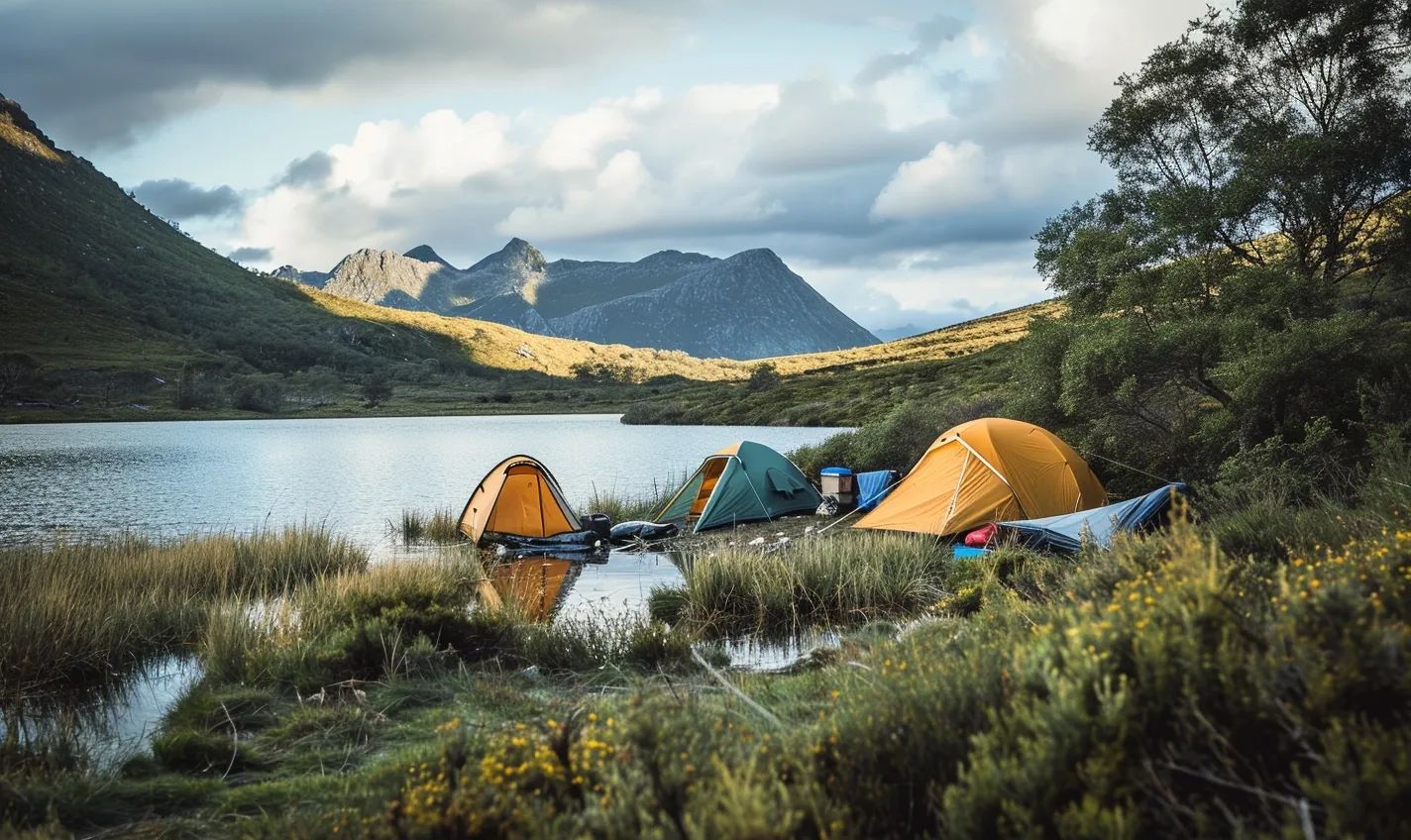
Understanding Campsite Regulations – The Key to a Smooth Camping Experience
When planning a camping trip, there are many factors to consider, from packing the essentials to choosing the perfect location. However, understanding campsite regulations is one of the most important aspects often overlooked. These regulations are in place to ensure a safe and enjoyable experience for everyone involved while also preserving the natural environment. By familiarizing yourself with these rules and regulations, you can avoid potential problems and maximize your time outdoors.
The Importance of Knowing Campsite Regulations
Understanding campsite regulations is crucial for several reasons:
- Safety: Regulations exist to keep campers safe from potential hazards, such as wildlife encounters, dangerous terrain, and weather-related risks.
- Environmental preservation: Campsite regulations help protect delicate ecosystems and ensure that future generations can continue to enjoy these natural spaces.
- Respect and consideration: By abiding by campsite regulations, campers show respect for others sharing the space, the local community, and the wildlife in the area.
How Campsite Regulations Ensure Safety and Preserve the Environment
Campsite regulations are designed to minimize the impact of human activity on the environment and promote sustainable camping practices. They typically include guidelines on the following:
- Campfire safety and cooking regulations to prevent accidental fires
- Waste disposal and “Leave No Trace” principles to minimize pollution and litter
- Quiet hours and noise restrictions to maintain peace and tranquility for all campers
- Pet regulations and wildlife interaction guidelines to protect both animals and fellow campers
Understanding Reservation and Check-In Procedures
Before embarking on your camping trip, it’s essential to understand the reservation and check-in procedures specific to the campsite you’ve chosen. Some key points to consider include:
- Booking your campsite in advance to ensure availability
- Knowing the check-in and check-out times to avoid any issues
- Familiarizing yourself with any additional fees or permits that may be required
By following these simple procedures, you can start your camping adventure on the right foot and avoid any unnecessary hassles or disappointments.
Remember, complying with campsite regulations is not only a legal requirement; it’s an essential part of being a responsible and considerate camper. By protecting the environment and respecting the rules, you can ensure a positive camping experience for yourself and others. So, before you head out into the wilderness, take the time to understand the campsite regulations in place – it’s an investment that will reward you with a smooth and enjoyable outdoor adventure.
The Importance of Knowing Campsite Regulations
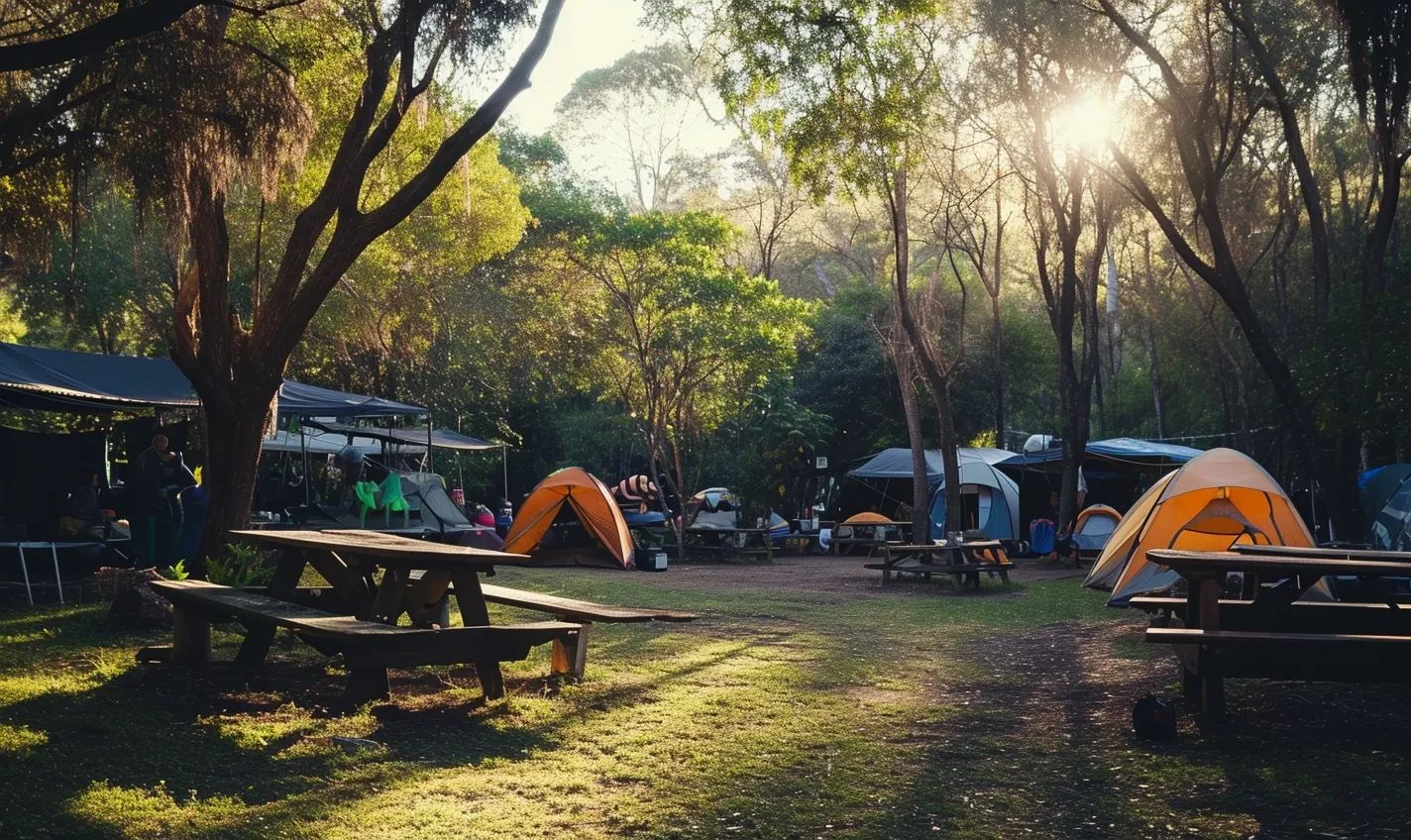
Whether you’re an experienced camper or just starting, understanding campsite regulations is crucial for a smooth and enjoyable camping experience. These regulations are put in place to ensure the safety of campers, preserve the environment, and promote harmonious living within the camping community.
Why Do Campsite Regulations Matter?
Imagine arriving at a campsite only to find out that the use of campfires is prohibited or that your furry friend isn’t allowed. Failing to comply with campsite regulations can result in penalties, fines, or even eviction from the campgrounds. By familiarizing yourself with these regulations beforehand, you can avoid any potential mishaps and make the most of your camping trip.
Ensuring Safety and Preserving the Environment
Campsite regulations play a vital role in maintaining the safety of campers and protecting the environment. Following these rules can minimize the risk of accidents, injury, and potential damage to natural habitats. Some standard safety guidelines include restrictions on open fires, cooking guidelines, and waste disposal rules.
Awareness of Specific Campsite Regulations
Each campsite may have unique regulations, so it’s essential to familiarize yourself with them before your trip. Here are some standard campsite regulations that you should be aware of:
- Noise Restrictions and Quiet Hours: Respect the peace of fellow campers by adhering to designated quiet hours.
- Reservation and Check-In Procedures: Understand the process of reserving a campsite and the check-in requirements.
- Pets and Wildlife: Follow guidelines for pets and wildlife to ensure the safety of both your furry friends and the local wildlife.
- Campfire Rules and Cooking: Learn the rules regarding campfires, fire rings, and cooking equipment, and follow them meticulously.
- Waste Disposal and Leave No Trace Principles: Properly dispose of your waste and follow Leave No Trace principles to preserve the environment for future generations.
Understanding and respecting these regulations helps create a positive camping experience for yourself and others who share the campsite with you.
Incorporating Campsite Regulations into Your Camping Routine
Once you understand the campsite regulations, make it a habit to incorporate them into your camping routine. This will ensure that you are well-prepared for any camping trip and can help to maintain a harmonious and enjoyable environment for everyone.
In conclusion, knowing and following campsite regulations is crucial for a positive and hassle-free camping experience. By respecting these rules, you can ensure your safety, protect the environment, and create lasting memories in the great outdoors. So, before your next adventure, take the time to understand the campsite regulations and enjoy your time in nature to the fullest.
What Are Campsite Regulations and Why Do They Matter?
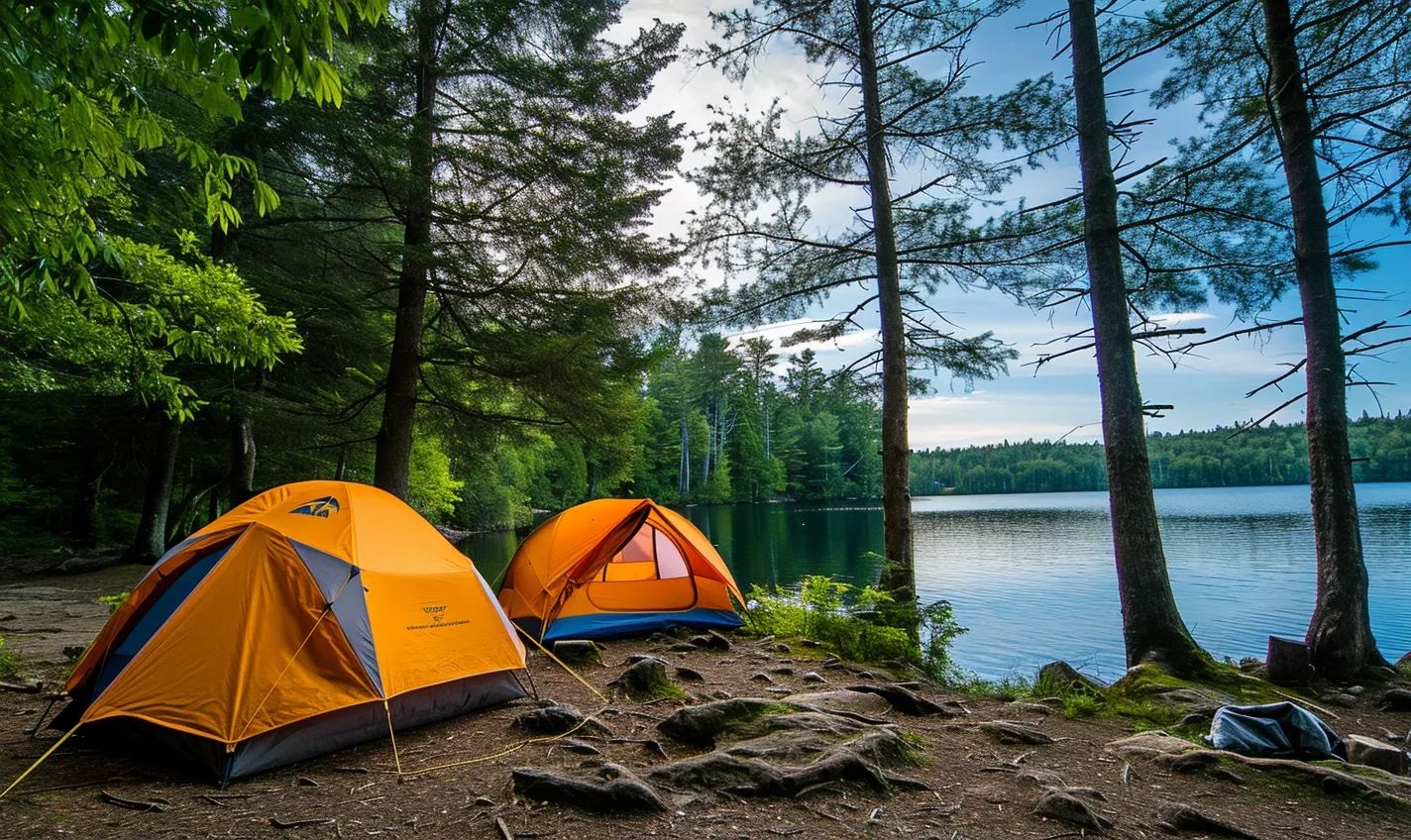
When it comes to camping, there’s nothing quite like reconnecting with nature and enjoying the great outdoors. However, it’s essential to remember that while you’re out in the wilderness, you are also sharing these spaces with other campers and wildlife. That’s where campsite regulations come in.
The Purpose of Campsite Regulations
Campsite regulations serve as guidelines and rules established by park authorities and campground management. The primary objective is to ensure visitors’ safe, enjoyable, and well-preserved environment. By adhering to these regulations, campers can help minimize potential harm to themselves, fellow campers, wildlife, and the surrounding ecosystems.
Keeping Everyone Safe
One of the main reasons why campsite regulations matter is they help keep everyone safe. When well-managed campsites, potential hazards can be minimized or eliminated, reducing the risk of accidents or injuries. Regulations may include guidelines for campfire safety, use of camping stoves, and restrictions on certain activities in designated areas.
Preserving the Environment
Understanding and following campsite regulations is crucial for preserving the natural environment. These regulations typically emphasize the principles of “Leave No Trace,” which encourage campers to minimize their impact on the surrounding ecosystems. By adhering to waste disposal guidelines, respecting wildlife habitats, and properly extinguishing campfires, campers can help protect the delicate balance of nature.
Ensuring a Positive Camping Experience
A well-regulated campsite creates a positive and enjoyable experience for all campers. By respecting quiet hours and noise restrictions, individuals can relax and experience the tranquility of nature without disturbance. Moreover, knowing the rules for pets and wildlife interaction helps maintain a harmonious relationship with local fauna and safeguard their well-being.
How Campsite Regulations Ensure Safety and Preserve the Environment
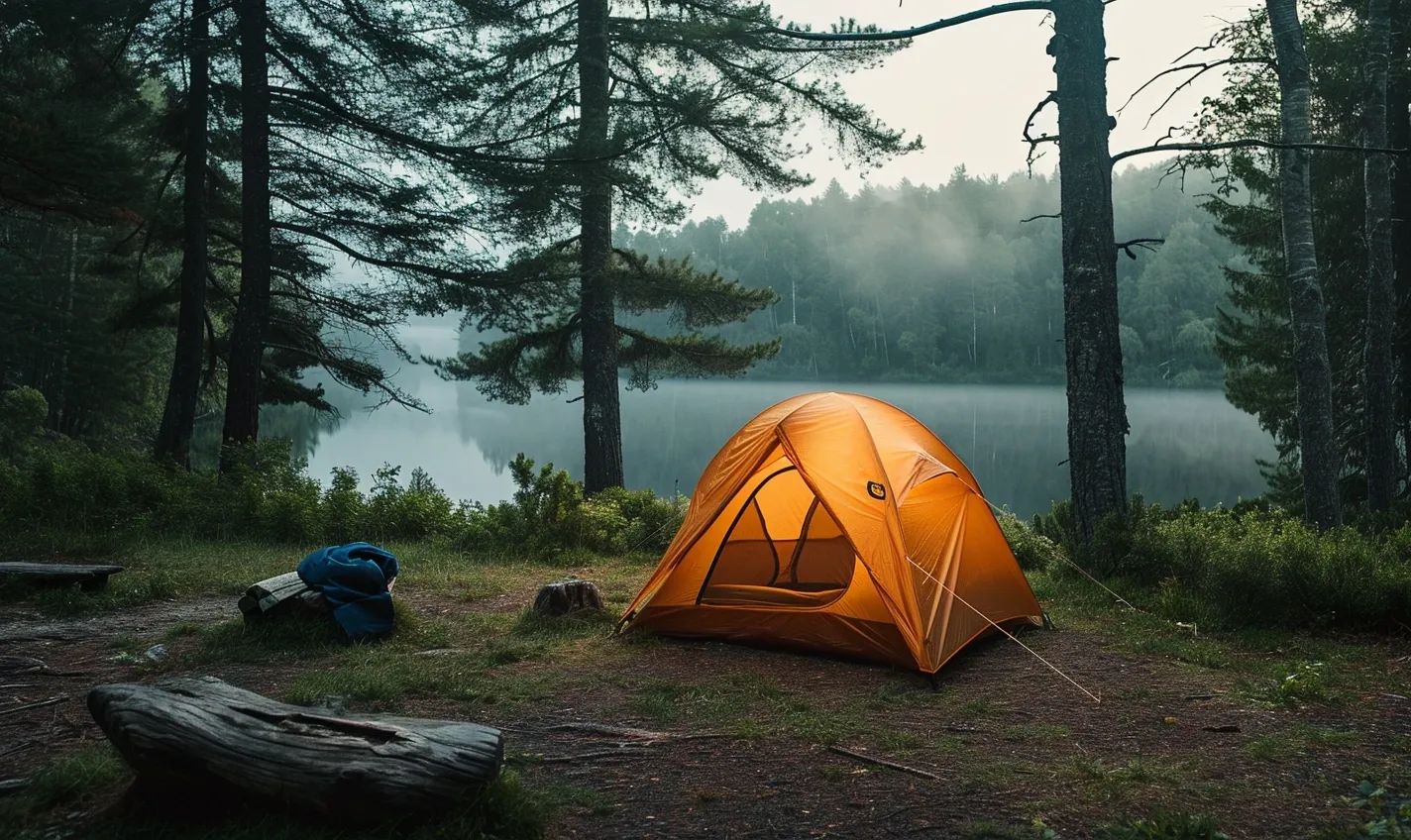
When it comes to camping, understanding and following campsite regulations is essential. These rules are implemented to ensure campers’ safety and preserve the environment for future generations to enjoy. By adhering to these regulations, you can have a smooth and enjoyable camping experience while also doing your part to protect the natural beauty of the surroundings.
Ensuring Safety
Campsite regulations are crucial in keeping everyone safe during their outdoor adventures. They provide guidelines on various aspects, including campfire safety, hazardous zones, and precautions to take in emergencies. By following these regulations:
- You minimize the risk of accidents or injuries
- You learn how to handle fire and avoid destructive wildfires properly
- You become aware of potential hazards, such as falling trees or unstable terrain
Understanding and following safety regulations protects you and your fellow campers and allows park rangers and emergency responders to manage any situations that may arise effectively.
Preserving the Environment
Preservation of the natural environment is a critical aspect of camping. Campsite regulations help mitigate the negative impact on nature by providing guidelines for waste disposal, noise restrictions, and wildlife interaction. By following these regulations:
- You contribute to the preservation of local ecosystems
- You prevent pollution by properly disposing of waste and adhering to “Leave No Trace” principles
- You respect the habitats of wildlife and minimize disturbances
Campsites are often located in stunning natural landscapes that harbor delicate ecosystems. By understanding and abiding by the regulations, you can help preserve the beauty and biodiversity of these areas for future campers to enjoy.
Remember, campsite regulations are not designed to restrict your freedom but rather to promote responsible and sustainable camping practices. By following these rules, you can have a safe, enjoyable experience while becoming a steward of the environment.
Common Campsite Regulations You Should Be Aware Of
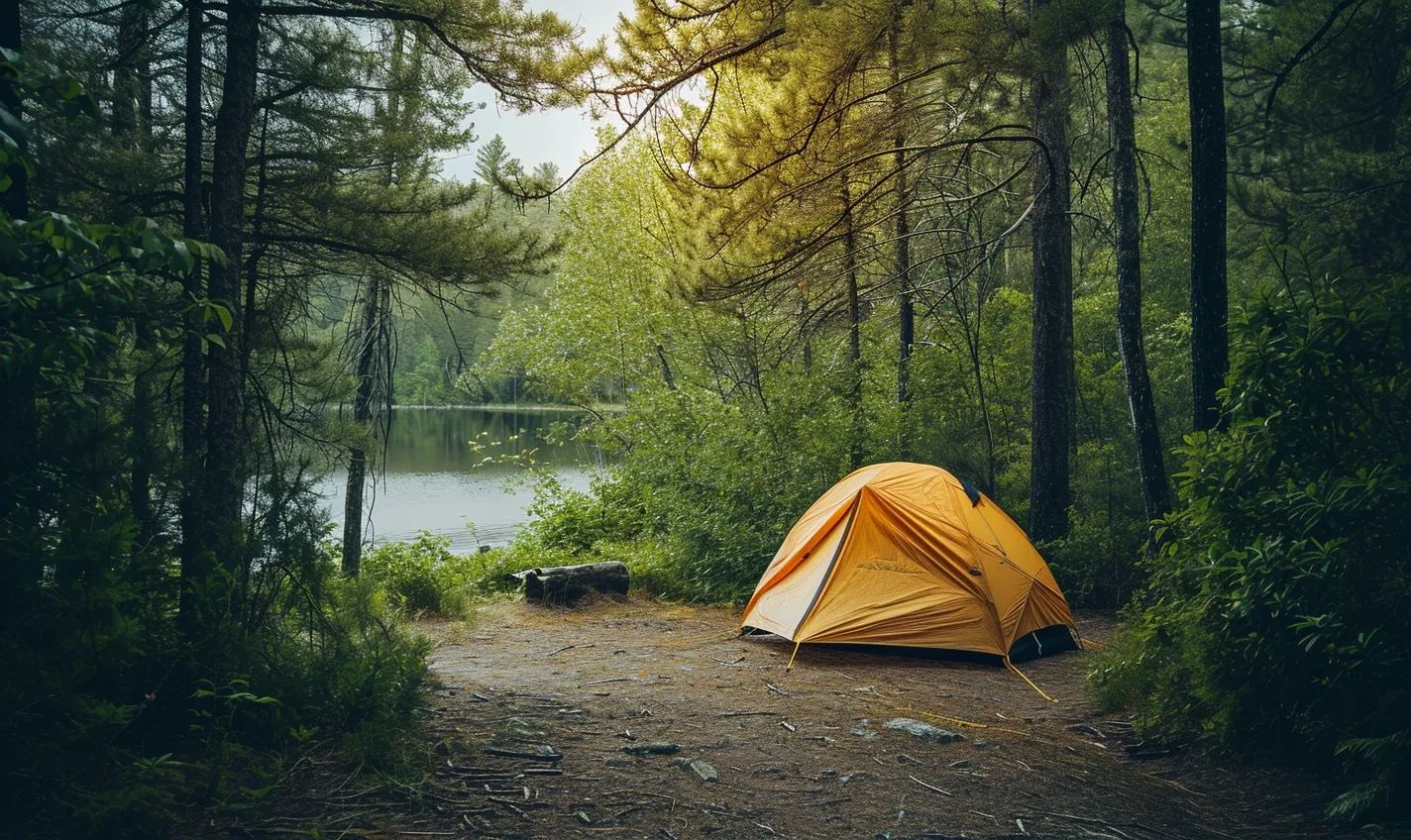
When planning a camping trip, it’s essential to familiarize yourself with the campsite regulations. These regulations are put in place by park authorities to ensure the safety and enjoyment of all campers and preserve the natural environment. Understanding and following these regulations allows you to have a smooth and stress-free camping experience. So, let’s take a look at some standard campsite regulations you should be aware of:
Campsite Reservation and Check-In Procedures
Before setting off on your camping adventure, reserve a campsite in advance. Many popular camping destinations require a reservation to ensure enough space for everyone. Additionally, familiarize yourself with the check-in procedures, as some campsites have designated check-in times.
Rules for Campfires and Cooking
Campfires are a quintessential part of the camping experience, but adhering to fire safety regulations is essential. Always use designated fire pits or rings to minimize the risk of accidental wildfires. Follow any restrictions on firewood collection, and do not leave fires unattended. When it comes to cooking, be aware of regulations regarding the use of grills or stoves and ensure proper disposal of cooking waste.
Guidelines for Waste Disposal and Leave No Trace Principles
Leave No Trace principles are an essential part of responsible camping. These principles encourage campers to minimize their impact on the environment. Follow guidelines for waste disposal, including proper disposal of trash and recycling. If the campsite doesn’t have restroom facilities, use designated bathroom areas or practice proper “Leave No Trace” techniques for backcountry toileting.
Respecting Quiet Hours and Noise Restrictions
Many campsites have designated quiet hours to ensure a peaceful camping experience for everyone. These hours typically vary throughout the day, and it’s important to respect them. Keep noise levels to a minimum during these times to allow everyone to relax and enjoy their surroundings.
Rules for Pets and Wildlife Interaction at Campsites
Review the campsite’s pet regulations if you plan to bring your furry friend along on your camping trip. Some campsites have specific areas where pets are allowed, while others may prohibit them altogether. When it comes to wildlife, never feed or approach animals, as it can disrupt their natural behaviors and potentially harm you and the wildlife.
Understanding and respecting campsite regulations ensures your own safety and contributes to the overall enjoyment of your fellow campers and the preservation of the environment. By following these standard regulations, you can have a memorable and positive camping experience. So, pack your gear, prepare yourself, and embark on a camping journey where adventure meets responsibility.
Understanding Reservation and Check-In Procedures
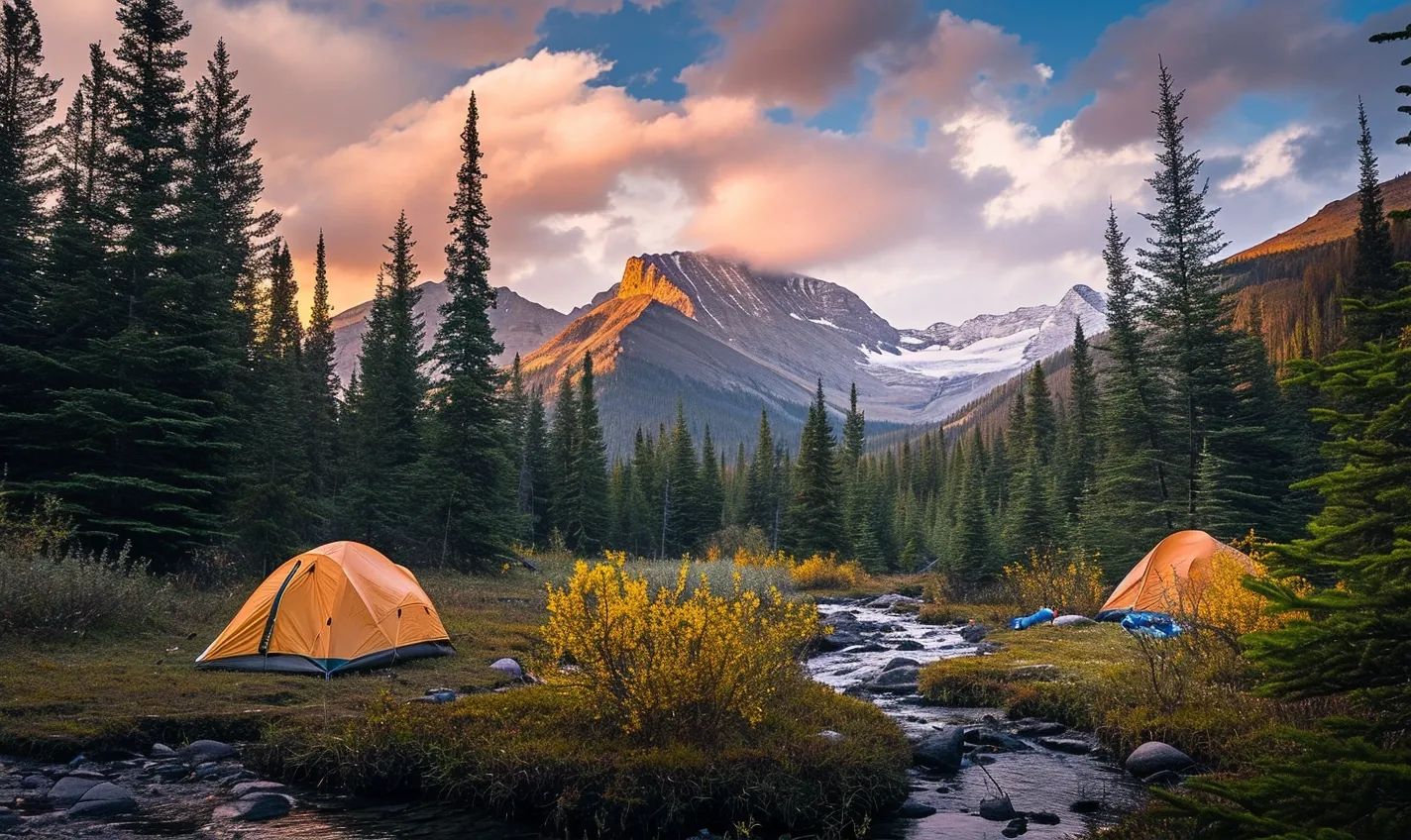
Understanding the reservation and check-in procedures is crucial when planning a camping trip. These procedures ensure a smooth camping experience and help you make the most out of your outdoor adventure. In this article, we will walk you through the steps involved in reserving a campsite and provide essential tips for a hassle-free check-in process.
Research and Make a Reservation
Before heading out to a campsite, it’s essential to do your research and find the best campground that suits your needs. Check for availability and if reservations are required. Some popular campsites may book up quickly, especially during peak seasons, so planning and reserving your spot well in advance is recommended.
Most campgrounds have online reservation systems that allow you to book your site conveniently. Ensure you provide accurate information, such as the dates you plan to camp and the number of people in your group. Additionally, familiarize yourself with any specific reservation policies and cancellation fees.
Check-In Process
Upon arriving at the campground, you must go through the check-in process to gain access to your campsite. Here are some general steps to expect:
- Arrival: Park your vehicle in designated areas and proceed to the check-in office or kiosk.
- Registration: Provide the campground staff with your reservation details and any required identification. They will confirm your reservation and assign you a campsite.
- Payment: If there are any outstanding fees, such as entrance fees or additional amenities, you must pay now. Some campgrounds may only accept cash, so having some on hand is a good idea.
- Orientation: The campground staff will provide you with a map of the campsite, directions, and any additional information regarding campground rules and regulations.
- Settlement: Proceed to your assigned campsite and set up your camping equipment.
Important Tips for Check-In
To ensure a smooth check-in process, keep the following tips in mind:
- Arrive early: To secure the best available spot and avoid any rush, try to arrive at the campground during the designated check-in hours.
- Come prepared: Bring all necessary documents, such as your reservation confirmation, identification, and any required permits. Having a copy of the campground rules and regulations is also a good idea for reference.
- Follow instructions: Pay attention to the guidance provided by the campground staff during the check-in process. They are there to assist you and answer any questions or concerns.
- Be respectful: Be courteous to other campers and follow campground etiquette. Observe quiet hours, keep your campsite clean, and adhere to all campground rules to ensure an enjoyable experience for everyone.
By understanding and following the reservation and check-in procedures, you can start your camping trip on the right foot. With everything in order, you’ll be free to immerse yourself in nature and create lasting memories with friends and family.
Understanding Rules for Campfires and Cooking

Regarding camping, one of the most enjoyable activities for many outdoor enthusiasts is gathering around a campfire and cooking delicious meals. However, it’s essential to understand the rules and regulations surrounding campfires and cooking to ensure a safe and enjoyable experience for everyone. Let’s explore some critical guidelines to follow during your camping adventures.
Check local regulations:
Before starting a campfire or cooking at your campsite, you must familiarize yourself with the specific rules and regulations of your camping area. This can usually be done by contacting the campsite or checking their website. Some areas may have restrictions on open fires or require permits, especially during periods of high fire danger. By being aware of the local regulations, you can ensure compliance and avoid potential fines or accidents.
Choose designated cooking areas:
Most campsites provide designated cooking areas with fire rings, grills, or stoves. These areas are designed to minimize the risk of fire spreading and provide a safe space for cooking. Using these designated areas is essential, rather than creating a fire pit or cooking setup elsewhere. Doing so can help preserve the environment and prevent accidental fires.
Use fire-safe cooking equipment:
When cooking at your campsite, it’s essential to use fire-safe equipment. This includes using sturdy and stable cooking stoves or grills placed away from flammable materials. Avoid using glass or fragile cookware that could break and cause injuries. Additionally, always have a fire extinguisher or a bucket of water nearby to extinguish any unexpected flames quickly.
Follow firewood guidelines:
Many campsites have specific rules regarding firewood, mainly to prevent the spread of invasive species or diseases. Using only local firewood or purchased firewood from approved sources is crucial. Don’t transport firewood from one area to another, as it may introduce harmful environmental pests or diseases. Adhering to firewood guidelines helps protect the local ecosystem and preserve the natural beauty of the campsite.
Be mindful of fire safety:
When starting and maintaining a campfire, always exercise caution and prioritize fire safety. Keep the fire small and manageable, never leaving it unattended. Ensure the fire is fully extinguished before leaving the campsite or sleeping. Use water or sand to douse the fire, ensuring no remaining embers thoroughly. Being responsible for fire safety protects the environment and minimizes the risk of accidental wildfires.
Understanding and adhering to campsite regulations regarding campfires and cooking is crucial to ensure a smooth camping experience. By following these guidelines, you can enjoy the warmth of a campfire and savor delicious meals while prioritizing safety and environmental preservation.
Guidelines for Waste Disposal and Leave No Trace Principles
When you embark on a camping adventure, it is essential to understand and respect the rules and regulations set in place by the campsite management. One crucial aspect of responsible camping is proper waste disposal and adherence to Leave No Trace principles. By following these guidelines, you can contribute to preserving the environment and ensure a positive camping experience for all. Let’s dive into the essential guidelines for waste disposal and the principles of Leave No Trace.
Pack it in, pack it out.
Always remember to bring garbage bags for your camping trip. Please dispose of all waste, including food scraps, beverage containers, and any other trash, in designated trash receptacles or take them home. Leaving garbage behind can harm the local ecosystem, attract wildlife, and create an unpleasant environment for fellow campers.
Separate recycling
Promote sustainable practices by separating recyclable items such as plastic bottles, cans, and paper. Many campsites provide recycling bins, making it easy for you to contribute to the recycling efforts and reduce the environmental impact.
Proper disposal of human waste
When nature calls, it is crucial to handle human waste appropriately. Many developed campsites provide restroom facilities, so always use them. If camping in an area without such amenities, follow the “Leave No Trace” principle and bury human waste at least 200 feet away from water sources, campsites, and trails. Use a small trowel to dig a hole 6 to 8 inches deep and cover it entirely afterward. This practice helps prevent the contamination of water and keeps the environment clean.
Respect fire pit regulations
Fire pits are a common feature at many campsites, but it is essential to understand and follow the rules regarding campfires. Respect any fire bans or restrictions due to weather conditions or local regulations. Always fully extinguish fires before leaving your campsite or going to bed by pouring water over the fire and stirring the embers to ensure no hot spots remain.
Follow the Leave No Trace principles.
The Leave No Trace principles serve as an excellent guide for minimizing our impact on the environment while camping:
- Plan and prepare.
- Travel and camp on durable surfaces.
- Dispose of waste properly.
- Leave what you find.
- Minimize campfire impacts.
- Respect wildlife.
- Be considerate of other visitors.
By incorporating these principles into your camping practices, you are actively working towards protecting nature’s fragile ecosystems for future generations.
Understanding campsite regulations and implementing waste disposal guidelines and Leave No Trace principles are essential for a safe and enjoyable camping experience. Please respect the environment and fellow campers, leaving the campsite as pristine as you found it. Together, let’s preserve the beauty of our natural surroundings and create lasting memories amidst the great outdoors.
Respecting Quiet Hours and Noise Restrictions
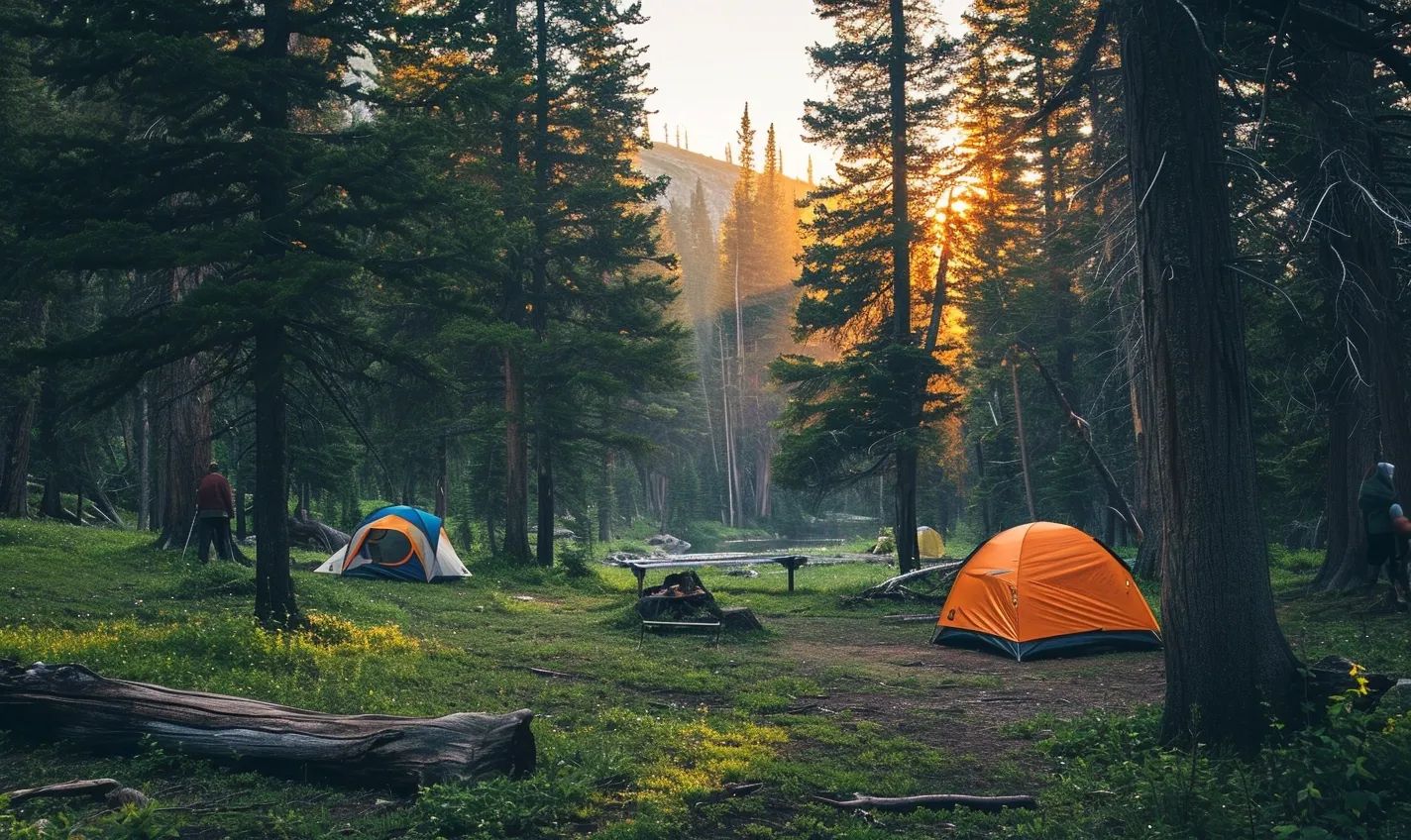
Regarding camping, one of the most important aspects of a peaceful and enjoyable experience is respecting quiet hours and noise restrictions. Understanding and adhering to these campsite regulations ensures a harmonious environment for all campers and shows respect for nature and fellow outdoor enthusiasts.
Why are quiet hours critical?
Quiet hours are designated periods during the day when campers are expected to keep noise to a minimum. This is typically during nighttime hours, ensuring everyone can have a good night’s sleep. Respect for quiet hours is essential for a peaceful camping experience and allows campers to relax, rejuvenate, and connect with nature fully.
During quiet hours, sounds should be kept to a minimum, including loud conversations, music, and using electronic devices at high volumes. By keeping noise levels down, campers can enjoy the sounds of nature, the gentle crackling of a campfire, and the peaceful ambiance of the outdoors.
Understanding noise restrictions
Noise restrictions go hand in hand with quiet hours and are designed to prevent excessive noise that can disturb other campers or wildlife. These regulations often specify acceptable noise levels and prohibited activities during certain times.
Here are some examples of noise restrictions you may encounter at campsites:
- Avoid playing loud music or musical instruments during quiet hours
- Refrain from using power tools or generators that create excessive noise
- Keep conversations at a reasonable volume to avoid disrupting neighboring campers
- Limit noise-producing activities such as hammering stakes, chopping wood, or setting up equipment during quiet hours
Benefits of respecting quiet hours and noise restrictions
By respecting quiet hours and adhering to noise restrictions, you are ensuring a pleasant camping experience for yourself and others around you. Here are some key benefits:
- Promotes a peaceful and relaxing atmosphere for all campers
- Respects the rights of fellow campers to enjoy the tranquility of the outdoors
- Preserves the natural soundscape and minimizes disturbance to wildlife
- Maintains a positive relationship with the campground staff and other campers
Remember, camping is a shared experience, and showing consideration for others is fundamental to creating an enjoyable environment. So, be mindful of the campsite regulations regarding quiet hours and noise restrictions, and let the serenity of the outdoors be the backdrop for your camping adventure.
Rules for Pets and Wildlife Interaction at Campsites
While camping is an opportunity for humans to connect with nature, it’s essential to remember that we are sharing the environment with various wildlife. To ensure the safety and well-being of humans and animals, campsite regulations often include guidelines for pets and wildlife interaction. By understanding and following these rules, you can contribute to the harmonious coexistence of humans and nature in camping areas.
Leash and Supervise Your Pets
Most campsites require pets to be kept on a leash at all times. This measure prevents pets from wandering off and potentially disturbing or harming wildlife. By closely supervising your pets, you can also prevent conflicts with other campers and ensure their safety.
Respect Wildlife and Their Habitat
When camping, it’s crucial to respect the natural habitats of wildlife. Avoid disturbing nests, burrows, or dens; do not feed or approach wild animals. Remember that feeding animals can disrupt their natural behavior and cause dependence on humans, which may lead to conflicts in the future.
Properly Dispose of Pet Waste
Always clean up after your pets and dispose of their waste properly. Pet waste can spread diseases and contaminate water sources if not handled correctly. Use designated pet waste stations or bring biodegradable waste bags to remove waste from the campsite.
Be Mindful of Noises and Activity
Excessive noise and disruptive activities from pets can disturb wildlife and other campers. Respect quiet hours and noise restrictions, especially during sensitive times such as dawn and dusk, to avoid disturbing nocturnal animals or fellow campers who may be seeking tranquility.
Follow Additional Campsite Pet Regulations
Campsite regulations may include specific rules and restrictions for pets, such as breed restrictions, temporary bans due to particular wildlife risks, or designated pet-friendly camping areas. Familiarize yourself with these additional regulations before your trip to ensure compliance.
By following these rules for pets and wildlife interaction, you contribute to preserving natural habitats and ensuring a pleasant camping experience for everyone. Remember, camping aims to enjoy and appreciate nature while minimizing our impact on the environment and its inhabitants. We can create a safe and respectful environment that allows humans and wildlife to thrive.
Ensuring Compliance with Campsite Regulations for a Positive Camping Experience
Understanding and adhering to campsite regulations is crucial when it comes to enjoying your camping trip to the fullest. These regulations are implemented to maintain safety, protect the environment, and ensure everyone has a pleasant experience outdoors. To make the most of your camping adventure, it’s essential to familiarize yourself with the specific regulations of your chosen campsite.
The Key to a Smooth Camping Experience
Understanding campsite regulations is the key to a smooth and enjoyable camping experience. By following these guidelines, you promote a safe environment and contribute to the preservation of the natural surroundings and wildlife habitat. Campgrounds are home to a diverse range of plants and animals, and compliance with regulations helps to minimize human impact on these delicate ecosystems.
The Importance of Knowing Campsite Regulations
Knowing campsite regulations is essential for several reasons. Firstly, it helps you plan your trip more effectively. You can come prepared and make alternate arrangements if necessary by understanding restrictions on activities such as campfires, cooking, and waste disposal. Additionally, adhering to regulations prevents potential hazards, reduces the risk of accidents, and fosters a respectful atmosphere among fellow campers.
How Campsite Regulations Ensure Safety and Preserve the Environment
Campsite regulations are designed to prioritize safety and environmental preservation. By adhering to rules such as maintaining a safe distance between tents, following fire safety guidelines, and properly disposing of waste, campers can prevent potential accidents and minimize the risk of fires. Furthermore, regulations related to wildlife interactions and noise restrictions help protect the campers and the natural inhabitants of the area.
Common Campsite Regulations You Should Be Aware Of
While campsite regulations can vary from one location to another, some standard rules are typically in place. These may include limitations on campfire size and location, restrictions on collecting firewood, designated camping areas, guidelines for waste disposal, and rules for handling pets and interactions with wildlife. Familiarizing yourself with these regulations before embarking on your camping trip will help ensure a positive experience for everyone.
By taking the time to understand and comply with campsite regulations, you contribute to the sustainability and enjoyment of the outdoor areas you visit. Remember, respecting these regulations benefits you, future campers, and the environment. So, before you set off on your next camping adventure, familiarize yourself with the rules in place and enjoy a safe and unforgettable experience in the beauty of nature.
Conclusion
In conclusion, understanding campsite regulations is vital for a smooth and enjoyable camping experience. These regulations are put in place to ensure the safety and well-being of campers and preserve the natural beauty of the campsite. By familiarizing yourself with the specific rules and guidelines of the campsite you will be visiting, you can avoid potential conflicts and inconveniences. Compliance with campsite regulations demonstrates respect for nature and fellow campers, from knowing where to pitch your tent to respecting quiet hours and fire safety protocols. Additionally, understanding and following these regulations will help you make the most of your time in the great outdoors, fully immersing yourself in the serenity and tranquility of the camping experience. So, before embarking on your next camping adventure, take the time to educate yourself on the campsite regulations – it’s a small investment that will pay off in big rewards. Happy camping!
Frequently Asked Questions (FAQs)
Understanding Campsite Regulations: Frequently Asked Questions
Q: What are campsite regulations?
A: Campsite regulations are rules and guidelines set by campgrounds and national parks to ensure the safety and enjoyment of all visitors. These regulations cover areas such as campfires, noise levels, waste disposal, etc.
Q: Why are campsite regulations necessary?
A: Campsite regulations are essential to protect the environment, wildlife, and visitors. They help maintain the area’s natural beauty, prevent accidents, and ensure a peaceful and enjoyable experience for everyone.
Q: Where can I find campsite regulations?
A: Campsite regulations can usually be found on the official website or brochure of the campground or national park you plan to visit. They may also be posted at the campsite office or entrance.
Q: Are campsite regulations the same everywhere?
A: No, campsite regulations can vary from one campground or national park to another. It’s essential to familiarize yourself with the rules specific to the area you plan to visit to ensure compliance.
Q: What are some standard campsite regulations?
A: Common campsite regulations include campfire restrictions, quiet hours, pet policies, speed limits, waste disposal guidelines, and respecting wildlife and vegetation. Check the specific rules of your chosen campsite for more details.
Q: What happens if I don’t follow campsite regulations?
A: Failing to abide by campsite regulations can result in warnings, fines, or eviction. Understanding and following the rules is essential to ensure a positive camping experience for yourself and others.







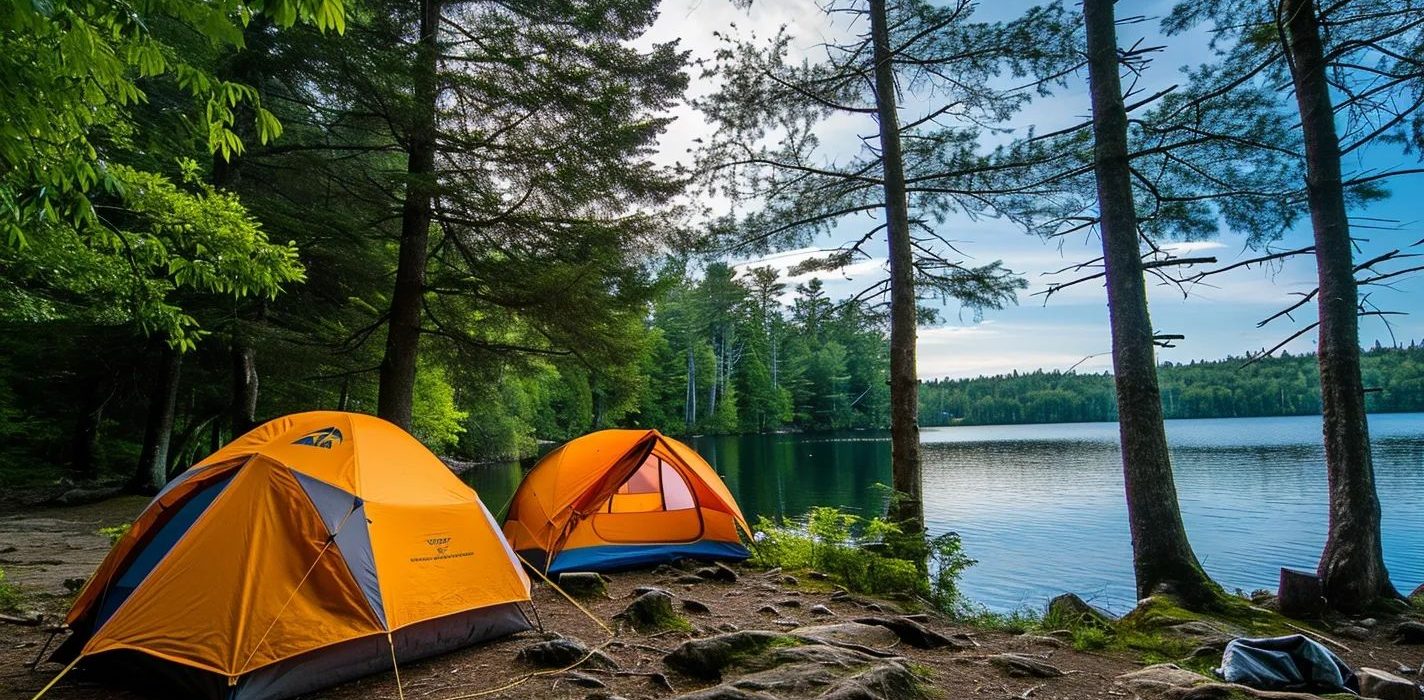


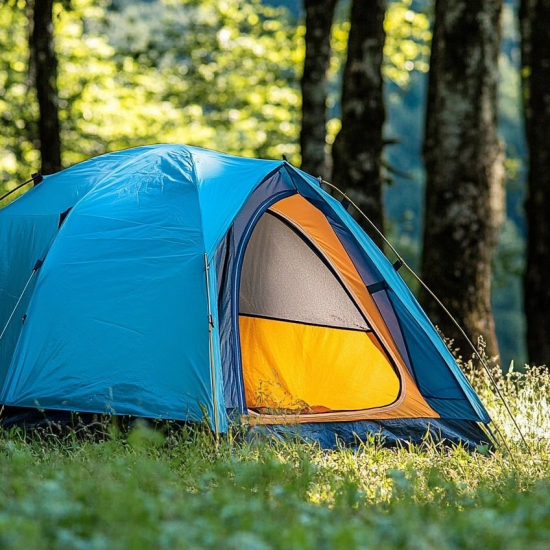
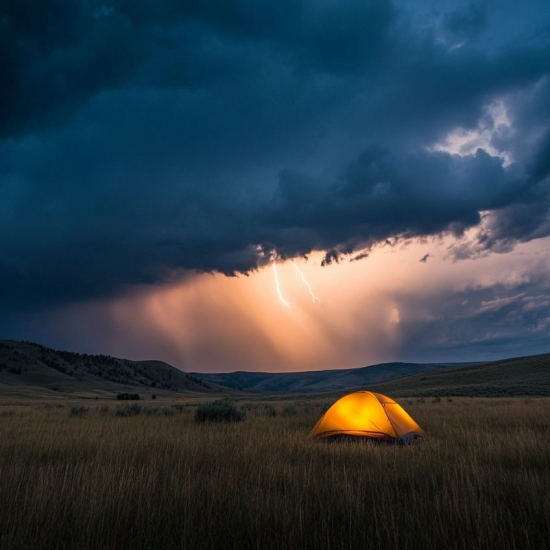
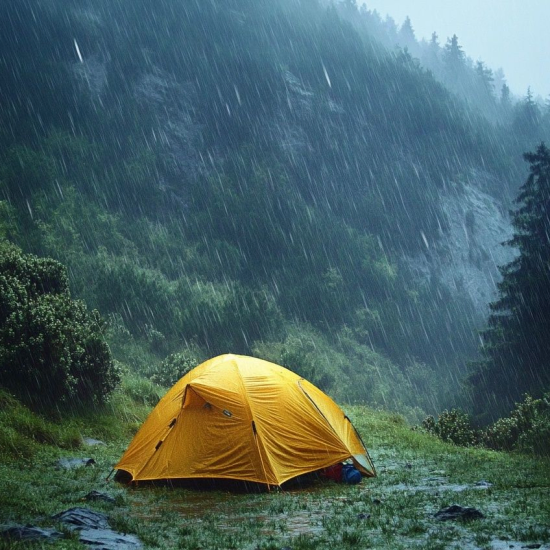
No Comment! Be the first one.